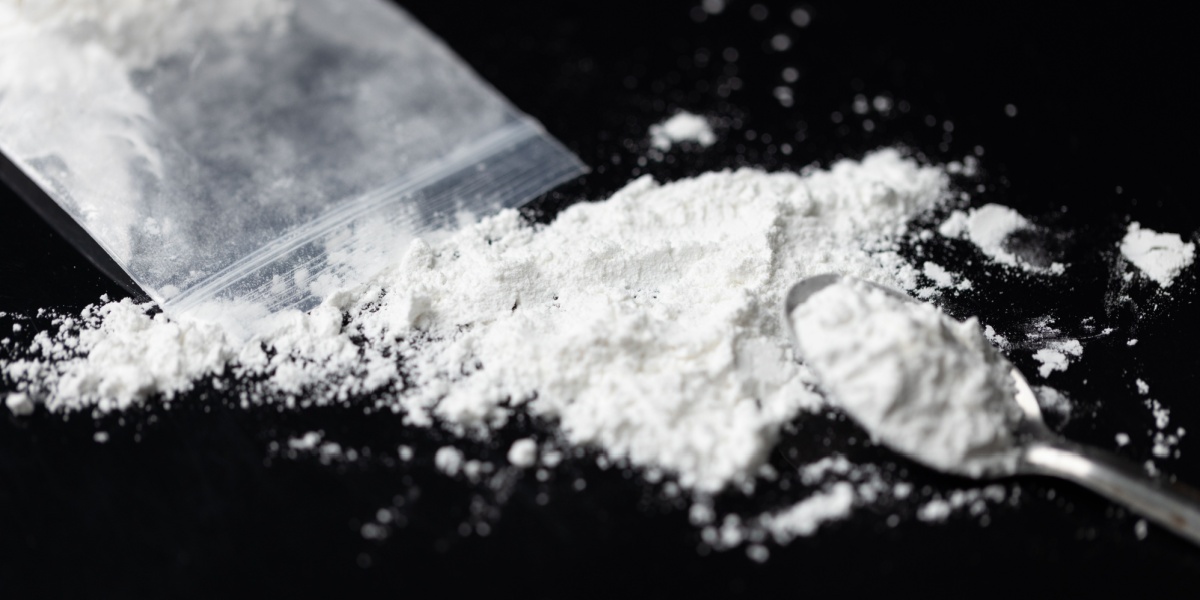Cocaine is a stimulant drug that causes a range of physical and psychological effects. When taken in large doses, cocaine can lead to overdose. This can cause severe or even fatal effects such as increased temperature, kidney and liver failure, psychosis, seizures, and heart abnormalities.
If someone is experiencing a cocaine overdose and is showing signs such as breathing difficulties, fever, severe agitation, delirium, or psychosis, call 911, as they will require urgent professional treatment.
- Signs of a cocaine overdose include increased heart rate, breathing difficulties, chest pain, blurred vision, sweating, changes in mental state, agitation, and hyperactivity.
- People who use cocaine can use harm-reduction techniques to improve their drug safety and prevent overdose, including testing drugs, using drugs in less harmful ways, and taking smaller doses.
- Treatment for cocaine overdose includes managing physical and psychological symptoms with medications. People may benefit from substance use disorder treatment.

Can you overdose on cocaine?
It is possible to overdose on cocaine and the effects can range from mild to severe or even fatal. Cocaine is a commonly abused drug that acts as a central nervous system (CNS) stimulant. The effects of cocaine impact organ functioning and psychological well-being. In particular, cocaine impacts the cardiovascular system and can cause severe risks to heart functioning. [1]
The effects of cocaine are fast-acting and short-lived, which contributes to its abuse potential. However, the effects of large doses can occur or continue hours after drug use, particularly cardiovascular effects, which increase the dangers of overdose. [2]
Cocaine can also cause extreme changes in mood and behavior, especially in large doses and during overdose. These effects can increase the risk of accidental harm and may cause serious psychological issues. [3]
Can you die from cocaine overdose?
Cocaine overdose can result in death. In some cases, these deaths can be caused by indirect reasons, such as accidental harm or infection. However, the greatest danger of cocaine overdose is related to cardiovascular effects, which can include severe and life-threatening events such as stroke, heart attack, and seizures. [4]
Statistics gathered by the Centers for Disease Control and Prevention (CDC) show that cocaine overdose deaths have increased from 6,784 in 2015 to 27,569 in 2022. These reports also highlight the increasing involvement of fentanyl in cocaine overdose deaths since 2015. [5]
Fentanyl is increasingly being mixed with drugs sold on the streets. Many people may be unaware that the drugs they buy contain fentanyl, which can cause a significant increase in dangerous effects and overdose risk. [1]
How much cocaine is too much?
Any amount of cocaine can have the potential to lead to overdose, although this risk can vary from person to person and may depend on various factors, such as: [1][3]
- Frequency of use
- Dosage taken
- Administration method
- Purity of cocaine used
- Individual tolerance to cocaine
- Use of additional substances
- Pre-existing health conditions, particularly cardiovascular issues
Cocaine overdose symptoms: What to watch for
Signs of a cocaine overdose include physical and psychological symptoms, ranging from mild to severe. Cocaine overdose can be life-threatening and these symptoms require urgent treatment and management. [4]
Emergency services (911) should be contacted in the event of any signs of a cocaine overdose, especially if the individual is showing signs of psychosis or delirium, is losing consciousness, cannot breathe, or is complaining of severe chest pain.
Physical symptoms of cocaine overdose
Physical signs of cocaine overdose can include: [2][3][4]
- Increased heart rate
- Abnormal heart rhythm
- Chest pain
- Headache
- Extreme sweating
- Severely increased body temperature
- Blurred vision
- Stomach pain
- Vomiting or diarrhea
- Irregular or strained breathing
- Seizure
- Twitching
- Abnormal or involuntary movements
- Kidney or liver failure
- Stroke
- Heart attack
- Loss of consciousness
What to do: Immediate response to a cocaine overdose
In the event of a cocaine overdose, call 911 immediately.
Cocaine overdose can be life-threatening and should be treated immediately to prevent severe harm or death. The individual may experience delirium or psychotic symptoms along with physical signs of overdose. Keeping them safe and calm can help prevent accidental harm and keeping them cool can help prevent overheating. [2]
Cocaine overdose treatment
There is no reversal agent for cocaine overdose. However, naloxone might be administered if opioid use is suspected, as this can reverse opioid effects.
Cocaine overdose treatment involves managing the symptoms of overdose to stabilize the individual’s psychological and physical well-being, such as: [2][4]
- Beta-blockers to reduce heart rate
- Benzodiazepines to reduce agitation, psychotic symptoms, and CNS stimulation
- Antipsychotics to reduce agitation, psychotic symptoms, and aggression
- Fluids and cooling agents to reduce fever
Preventing cocaine overdose
The risk of overdose is increased if people regularly use large amounts of cocaine, inject drugs, or use multiple drugs at once. Implementing harm reduction strategies can help reduce the risk of overdose. This can include: [6]
- Testing drugs for the presence of unexpected substances such as fentanyl
- Administering the drug in a less dangerous manner, such as ingesting instead of injecting
- Taking smaller doses
- Not combining substances
The best way to prevent overdose is to stop using drugs altogether. Professional advice and treatment can help people reduce or stop cocaine use.
Long-term recovery from cocaine abuse
People with an addiction or dependency on cocaine can utilize professional help to reduce and potentially stop their drug use. Substance use disorder treatment can involve: [1]


-guide-detail.jpg?v=1722503633)

-guide-detail.jpg?v=1722502215)